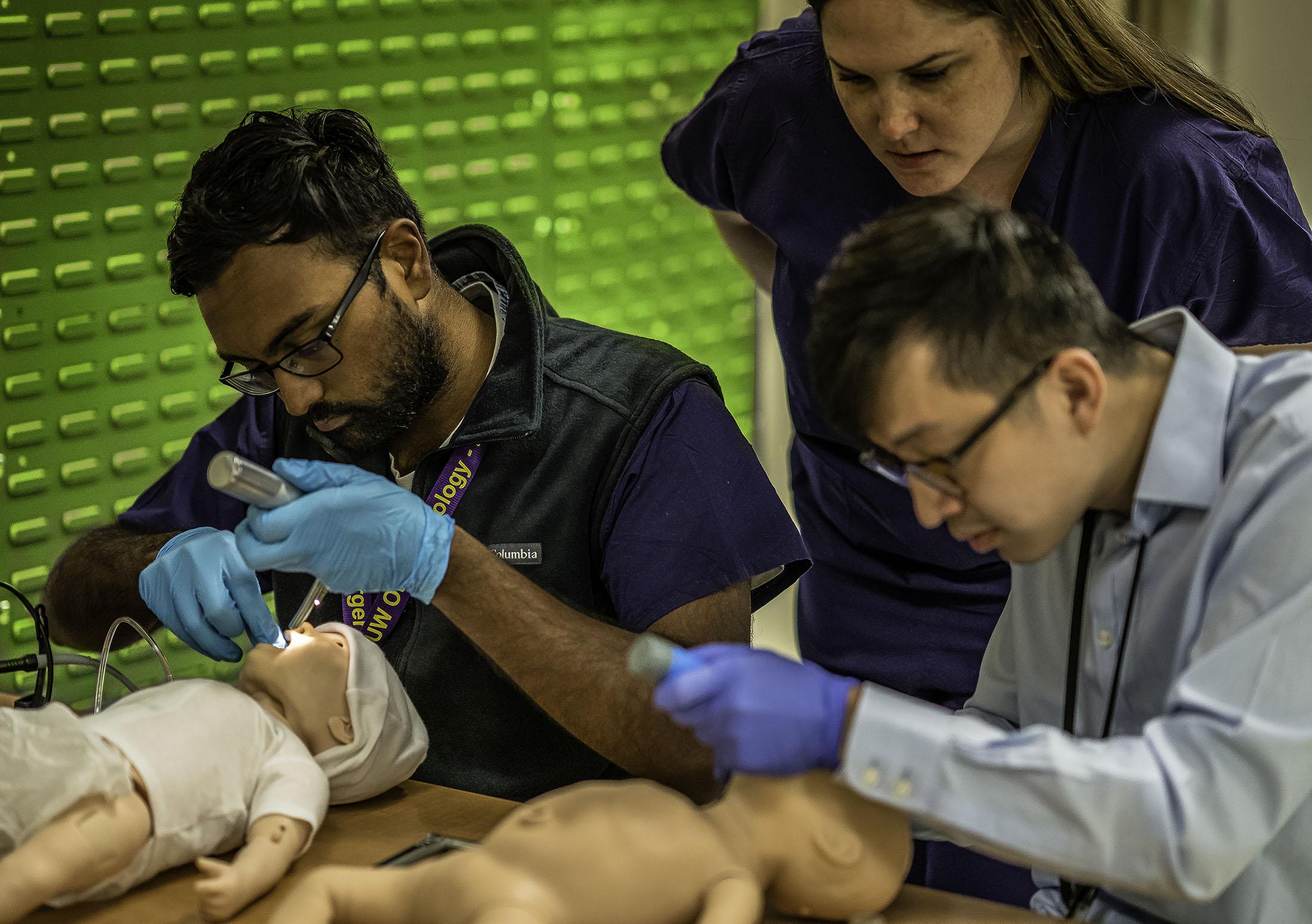Discovering the Field of Otolaryngology: What to Anticipate When You Consult an ENT
Otolaryngology, frequently described as ENT, encompasses the medical diagnosis and therapy of nose, throat, and ear conditions. For those experiencing relevant issues, seeking advice from an ENT specialist can provide quality and relief. Understanding what to anticipate during such assessments is necessary for efficient interaction and care. This summary will lay out essential aspects of the ENT experience, including common factors for gos to and the procedures entailed in diagnosis and therapy.

Comprehending Otolaryngology: An Introduction
Otolaryngology, commonly referred to as ENT (Ear, throat, and nose) medication, is a customized branch of medicine that concentrates on the medical diagnosis and treatment of problems influencing these crucial locations of the body. This area encompasses a variety of disorders, including those relevant to hearing, equilibrium, respiratory function, and speech. Otolaryngologists are educated to handle both medical and medical treatments, making use of sophisticated methods and technologies. Their expertise expands beyond traditional disorders, addressing concerns such as allergic reactions, sinus infections, and hearing loss. Furthermore, they play a vital role in the management of head and neck cancers, offering comprehensive care customized to private person demands. Generally, otolaryngology stays important for preserving health and lifestyle in afflicted individuals.
Typical Reasons to See an ENT Specialist
Lots of people look for the knowledge of an ENT expert for a range of reasons, showing the diverse nature of conditions that affect the nose, ear, and throat. Common issues consist of chronic sinusitis, which commonly causes consistent nasal congestion and face discomfort. Allergic reactions and their associated signs, such as sneezing and itching, additionally motivate brows through to these specialists (ENT Clinic). Hearing loss, whether progressive or abrupt, is an additional substantial reason for consultation. On top of that, individuals might look for evaluation for throat problems, including persistent hoarseness or swallowing troubles. Sleep apnea, identified by cut off breathing during sleep, is regularly addressed by ENT experts. Each of these conditions highlights the significance of specialized care in handling complicated ENT-related health issues
Preparing for Your ENT Consultation
When getting ready for an ENT appointment, it is vital to collect pertinent info and consider any specific problems. Clients need to assemble a detailed case history, including previous ear, nose, or throat issues, surgeries, and present drugs. Recording symptoms-- such as extent, regularity, and duration-- can provide important understandings for the ENT professional. In addition, individuals should prepare a listing of inquiries they wish to ask, making certain that all issues are attended to during the browse through. Bringing along any kind of pertinent clinical documents or test results can additionally aid the ENT in comprehending the individual's problem. People need to verify their visit information, consisting of time, day, and location, to lessen any final confusion. Appropriate preparation can improve the efficiency of the examination and bring about far better end results.
What to Expect During the Appointment
As the appointment starts, the individual can anticipate to participate in a detailed conversation with the ENT professional regarding their symptoms and case history. The professional will ask about the duration, regularity, and extent of signs such as hearing loss, nasal blockage, or aching throat. Additionally, the person's previous medical problems, medicines, and any relevant family members history will be reviewed, assisting the expert in forming a full understanding of the client's health. The ENT might likewise ask about way of living aspects, such as exposure to allergens or irritants. This open discussion develops a structure for the examination, ensuring that the person's worries are dealt with and establishing the stage for any kind of needed examinations or recommendations for therapy.
Diagnostic Examinations and Treatments in Otolaryngology
A variety of analysis examinations and procedures are essential in otolaryngology to precisely review and detect conditions influencing the throat, ear, and nose. Typical examinations consist of audiometry, which measures hearing function, and tympanometry, assessing middle ear pressure. Nasal endoscopy enables visualization of the nasal flows and sinuses, while laryngoscopy examines the throat and vocal cables. Imaging strategies, such as CT scans and MRIs, offer thorough views of head and neck structures. Allergic reaction screening may additionally be conducted to identify triggers for sinus or breathing concerns. These analysis tools allow Recommended Reading ENT professionals to create a detailed understanding of patients' conditions, making certain tailored and efficient administration strategies. Correct diagnosis is necessary for effective therapy outcomes in otolaryngology.
Treatment Choices Supplied by ENT Specialists
ENT professionals offer a range of therapy options tailored to deal with details conditions impacting the ear, nose, and throat. These therapies vary from conventional techniques, such as medicine and way of life modifications, to even more intrusive treatments. As an example, allergies might be taken care of with antihistamines or immunotherapy, while persistent sinus problems might need nasal corticosteroids or sinus surgery. For hearing loss, ENT professionals usually advise listening device or surgical treatments like cochlear implants. In instances of throat conditions, options can consist of speech treatment or surgical treatments to remove obstructions. In addition, they might offer guidance for managing rest apnea, including the usage of CPAP gadgets or surgical treatments. On the whole, the objective is to enhance clients' quality of life with personalized treatment and effective therapy methods.
When to Seek Follow-Up Treatment With an ENT
Identifying when to seek follow-up treatment with an ENT specialist is crucial for managing continuous signs and symptoms or complications connected to ear, throat, and nose conditions. Clients ought to consider setting up a follow-up visit if symptoms linger in spite of preliminary therapy, such as persistent ear discomfort, nasal blockage, or throat discomfort. Modifications in hearing, equilibrium concerns, or uncommon nasal discharge may additionally warrant additional analysis. Additionally, if a client experiences side effects from suggested medications or has gone through a medical treatment, follow-up care is essential to keep an eye on recuperation and deal with any worries. Timely assessments can ensure effective management of conditions, avoid prospective issues, and provide peace of mind concerning one's health and wellness. Seeking follow-up care promotes proactive health management in otolaryngology.
Often Asked Concerns

What Credentials Should I Try to find in an ENT Expert?
When seeking an ENT specialist, one must try to find board certification, relevant experience, and solid client reviews. In addition, efficient communication abilities and a compassionate strategy can considerably improve the overall therapy experience.
Exactly how Do I Choose the Right ENT for My Demands?
Picking the best ENT specialist entails reviewing their credentials, experience, and patient testimonials (ENT Clinic). It is necessary to consider their interaction design and method to therapy, ensuring they straighten with the individual's particular health and wellness needs and choices
Are There Any Type Of Dangers Related To ENT Procedures?
The risks related to ENT procedures may include infection, blood loss, anesthetic difficulties, and potential damage to surrounding frameworks. Individuals need to discuss these risks with their physician to understand private issues and assurance notified decisions.
Exactly How Can I Handle Stress And Anxiety Prior To My ENT Visit?
To handle stress and anxiety before a visit, individuals can practice deep breathing exercises, visualize favorable end their explanation results, prepare inquiries ahead of time, and seek assistance from buddies or household, fostering a sense of reassurance and peace.
What Should I Do if I Experience Adverse Effects From Treatment?
If side effects from treatment take place, the person must immediately report them to their health care company. Changes to therapy or additional treatments might be required to assure security and effectiveness in handling their condition - Otorrinolaringologia. As the assessment starts, the individual can expect to involve in an extensive discussion with the ENT professional regarding their additional info signs and symptoms and clinical history. These diagnostic tools enable ENT experts to develop a complete understanding of clients' problems, guaranteeing customized and effective monitoring plans. ENT experts supply a range of therapy options tailored to resolve specific problems influencing the nose, throat, and ear. When seeking an ENT expert, one need to look for board accreditation, pertinent experience, and solid client testimonials. Choosing the best ENT professional entails assessing their credentials, experience, and patient reviews